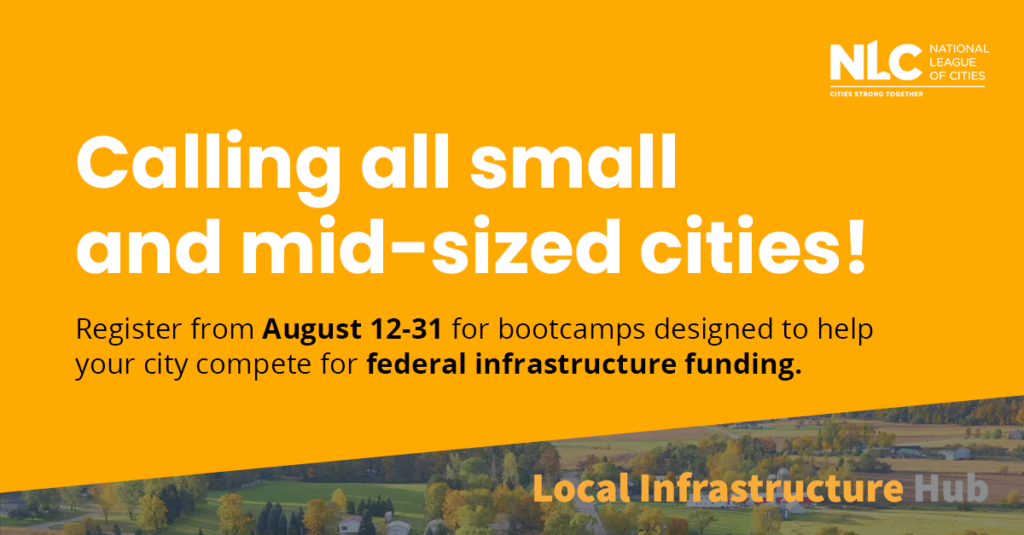Source: National League of Cities
Bootcamp training courses to help small/mid-sized cities develop competitive infrastructure grant applications

The Infrastructure Investment and Jobs Act is a $550 billion investment into American infrastructure that promotes economic growth and development.
Although this funding is offered to municipalities across the country, smaller cities and towns are not always equipped with the necessary resources to submit strong applications for federal infrastructure money. That’s why the National League of Cities and the Local Infrastructure Hub are proud to bring you a free series of bootcamp training courses designed to help small and mid-sized cities secure funding for infrastructure projects.
With at least 30 courses available in this two-year project, each of the courses will run for an average of four months, with live learning sessions taught by subject matter experts, along with coaching sessions, office hours, and opportunities for peer learning.
Cities will be guided through the process of how to complete an asset map for their community; using those, cities can refine how they build and execute a community engagement strategy. Cities will also learn how to utilize data to understand problems, test and define solutions, ground applications in data, and ensure their grant applications will achieve the desired outcome/s. Bootcamp trainings will also provide instruction to assemble a complex capital stack and budget for grant applications, align their grant application with broader federal priorities, and write winning grant applications that are tailored to the metrics and policy priorities behind specific grant opportunities.
Spots are limited to the first few hundred cities to register, so register before August 31, 2022, and take one step closer to accessing federal infrastructure funding that supports your community!
The first five course offerings that will be available this September will focus on the following grant categories:
- Building Resilient Infrastructure and Communities ($1 billion): Supports communities as they undertake hazard mitigation projects, reducing the risks they face from disasters and natural hazards.
- Energy Efficiency and Conservation Block Grant Program ($550 million): Supports communities to implement strategies to reduce fossil fuel emissions, reduce the total energy use of the eligible entities, improve energy efficiency in the transportation, building, and other appropriate sectors.
- Flood Mitigation Assistance Grants ($3.5 billion): Supports communities with projects that reduce or eliminate the risk of repetitive flood damage to buildings insured by the National Flood Insurance Program.
- Strengthening Mobility and Revolutionizing Transportation (SMART) Grant Program ($500 million): Supports communities on demonstration projects focused on advanced smart community technologies and systems in order to improve transportation efficiency and safety.
Charging and Fueling Infrastructure Grants ($2.5 billion): Supports communities to address EV charging needs for passenger vehicles and light duty trucks.